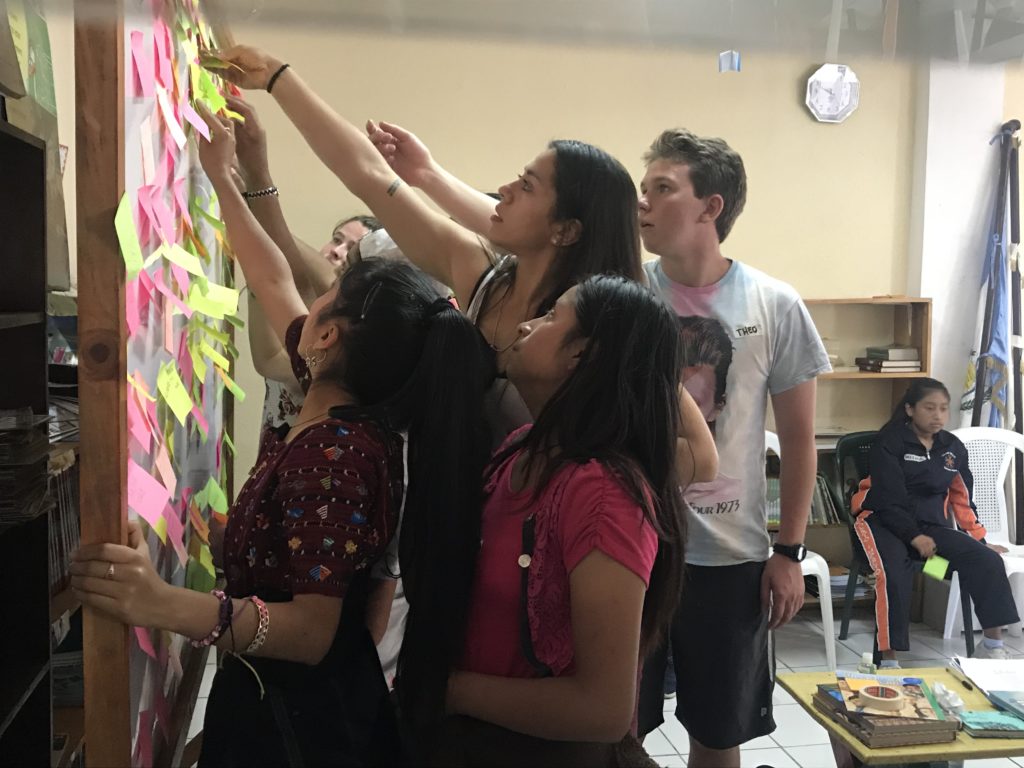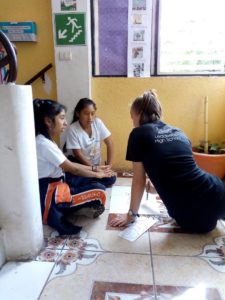Stronger Together: Authentic Girls’ Empowerment Across Borders

What does it look like to create a global engagement experience that benefits all participants? Many global education programs make claims of authenticity and community connection, yet are often designed primarily to meet the needs of students in the Global North. With funding from the Posner Center’s International Collaboration Fund (ICF), a trio of organizations set out to see if they could do it differently.
This partnership brought together three diverse organizations, each with unique skills and assets to add to the partnership. Envoys, an experienced, evidence-based global education company provided leadership for trip design, survey development, and travel logistics. Students from Denver’s Girls Athletic Leadership School (GALS) had the opportunity to travel to Guatemala to engage with the ‘Girl Pioneers’ enrolled in the new Starfish Impact School. For GALS, this was their first-ever international trip offered to students. While Starfish had previously worked to ensure that international visitor trips provided value to their students, they hadn’t previously engaged in the design process from the beginning with all partners to help make that goal possible.
This trip wrapped up in early September; all partners are still reveling in the experience and determining how to integrate their learning from this experience. From September 2nd-8th, 9 GALS students and 3 additional students from schools in Colorado and Pennsylvania traveled to Guatemala. There, they had a facilitated exchange with 13 students from the Starfish Impact School. The exchange was co-created by all partners, and used a framework from Envoys that highlighted which domain of global learning was being strengthened by each activity.
The engagement was designed to help students identify connection points, from designing a real-life superhero to a brainstorming activity on shared challenges. Speaking about the students’ experience, Isabela Eslava from Envoys shared, “realizing that two people from such different cultural and social backgrounds could have similar thoughts and ideas about their families, their schools and their place in the world was eye opening for them, and helped build trust and deeper connections throughout the workshop.” Even simply the experience of being in a new place had a profound impact for the GALS students. Liberty Ramos from GALS reflected, “Once we drove through the city, it looked like Denver, with traffic and students walking to school but they had uniforms. And more colors—that is one thing I will never forget about Guatemala is the time and effort Guatemalans put in to make their country so beautiful with color and art.” 
Not only was there value for the students, but each organization in this partnership benefited too. Starfish, though they have hosted students before, shared that this was “the most meaningful exchange we have experienced.” For Envoys, this was the first time they were able to collaborate in a meaningful way with all three entities to co-design the program. Engaging all parties at the outset served to better elevate the voices and valued perspectives of their in-country partners from the start. It led to a better experience for all students and is something Envoys is eager to build into more of their programming in the future.
While we have an initial sense of the value of the visit from the glowing smiles of the students and pictures of their engagement, we’re still looking to dig deeper into the original question: can we design and execute a global engagement experience that provides equal benefit to all participants?
As a part of the ICF project, this group has designed a robust analysis of the global education learning outcomes for all participants. They conducted a baseline assessment with all participants and are currently leading the post-assessment phase of the research. A group of non-traveling GALS students is serving as the control group. This fall, they are collecting and analyzing the data and plan to present to the Posner Center community in December. Together, we’ll get an opportunity to learn if equitable global education is possible and, if so, how NGOs, global education providers and schools can play a role in creating these opportunities for students across the globe.
